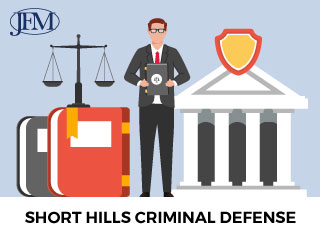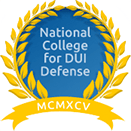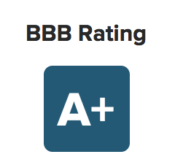
Short Hills may seem quiet, but criminal charges here can move quickly and affect every aspect of your life. When you search for Short Hills NJ criminal attorneys, you’re really looking for a strategic guide through Essex County’s systems, from the Millburn Municipal Court for lower-level matters to the Superior Court in Newark for indictable offenses. The terrain is local, the rules are statewide, and the small choices you make early can have a ripple effect for years.
You want a defense lawyer who won’t just recite statutes but will translate legal procedure into practical next steps. At The Law Offices of Jonathan F. Marshall, our Short Hills NJ criminal lawyers pair courtroom skill with solution-focused advice, so you’ll understand what every decision means today and how it could affect your future. One of our lawyers is ready to help you fight for your freedom, so please contact us as soon as you can.
Short Hills Cases Move on Two Tracks: Municipal and Superior
 Criminal and traffic complaints filed in and around Short Hills often begin in the Millburn Municipal Court. Disorderly persons offenses, ordinance violations, and traffic matters (including DWI) are heard in municipal court, while indictable charges move to the Superior Court, Criminal Division, in Newark. The distinction matters because procedures, exposure, and available outcomes differ by forum, including how discovery flows and how appeals work.
Criminal and traffic complaints filed in and around Short Hills often begin in the Millburn Municipal Court. Disorderly persons offenses, ordinance violations, and traffic matters (including DWI) are heard in municipal court, while indictable charges move to the Superior Court, Criminal Division, in Newark. The distinction matters because procedures, exposure, and available outcomes differ by forum, including how discovery flows and how appeals work.
You’ll see the community’s character reflected in the docket. Retail-theft allegations tied to large shopping destinations, NJ Transit-related encounters, or late-night stops near residential corridors typically go to municipal court. However, when Essex County upgrades a complaint, the case usually follows Superior Court timelines and Criminal Division protocols from first appearance to disposition.
What to Expect in the First 48 Hours: Risk Assessments and Release Conditions
New Jersey’s bail reform shifted early hearings toward a risk-based model. Judges rely on Pretrial Services and standardized assessments when deciding whether to release or detain, and release can come with conditions such as reporting, electronic monitoring, or home-detention terms. You’ll want to understand those conditions before you agree, because violations can send you back to court quickly.
Your first appearance will set the tone for the remainder of your case. A seasoned attorney will help you evaluate whether to seek modification of conditions, challenge probable cause, or push for early diversion where appropriate, keeping an eye on collateral issues that matter in Short Hills, from professional licensing to immigration concerns.
Diversion Paths Worth Considering: PTI, Conditional Dismissal, and Conditional Discharge
For indictable offenses, the Pretrial Intervention (PTI) program can be a lifeline for eligible first-time defendants. Supervision can run from six months to several years with tailored conditions, and completing the program can lead to a dismissal that will change the trajectory of your record and career. A diligent lawyer will frame your application around community ties, rehabilitation steps, and the facts that show why a non-trial outcome serves justice.
Municipal-level options exist as well. Conditional Dismissal can resolve some disorderly persons matters, while Conditional Discharge targets certain drug-possession cases charged in municipal court. Each program has its own screening rules, costs, and compliance terms, which a focused attorney will map against your goals and the evidence profile.
Retail Theft, DWI, and School-Zone Proximity: Common Short Hills Allegations
 Shoplifting allegations can hinge on small, provable facts: where a loss-prevention officer stopped you, what surveillance actually shows, and whether the specific conduct fits the statute. A skilled Short Hills NJ criminal defense lawyer will test elements, value thresholds, and intent, while negotiating with an eye on diversion and long-term record impact, especially given retail-centric enforcement patterns in the area.
Shoplifting allegations can hinge on small, provable facts: where a loss-prevention officer stopped you, what surveillance actually shows, and whether the specific conduct fits the statute. A skilled Short Hills NJ criminal defense lawyer will test elements, value thresholds, and intent, while negotiating with an eye on diversion and long-term record impact, especially given retail-centric enforcement patterns in the area.
DWI charges remain municipal-court matters, yet the penalties and collateral effects reach far beyond a traffic ticket. New Jersey’s framework sets tiered consequences tied to blood-alcohol concentration and prior history; you’ll also confront ignition-interlock requirements, license suspensions, and insurance fallout. A defense attorney will parse the stop, Alcotest procedures, discovery gaps, and refusal allegations, pressing every procedural safeguard available under state guidance.
Refusal to submit to breath testing is its own offense, backed by implied-consent principles and separate penalty tables published by state agencies. A careful lawyer will review whether proper warnings were read and whether collection protocols were followed, since those details often drive outcomes.
Juvenile Allegations and Family Impact
When conduct involves someone under 18, proceedings shift to the Family Division, and the language changes from “guilt” to “delinquency.” Timelines, dispositions, and rehabilitative options differ from those in adult court, making early advice crucial for families in Millburn Township. An informed Short Hills NJ criminal attorney will prepare you for intake, detention benchmarks, and alternatives aimed at schooling and treatment.
The downstream effects can be significant. Records management, program compliance, and school-related issues require coordinated planning to prevent conflicts between educational goals and court obligations.
Why Choose Us? Scale, Access, and Strategy
You want a team that pairs practical advice with courtroom grit. At The Law Offices of Jonathan F. Marshall, we’re proud to be New Jersey’s largest criminal defense firm, with 20 professionals focused solely on criminal law. You’ll benefit from attorneys stationed in multiple courts who understand local practices and have working relationships on the other side of the courtroom, which helps when swift communication or pragmatic solutions can change an outcome.
Our footprint spans more than 10 offices statewide, and we appear in virtually every local court regularly. That reach supports a customized plan for you, rather than a one-size template. Our group will frame options in plain language so you see the tradeoffs clearly.
How We’ll Approach Your Defense
A defense lawyer from our team will start by diagnosing the forum, charge level, and procedural posture, then outline the motion paths that fit your facts. You’ll see a clear plan for discovery demands, expert evaluation where appropriate, and negotiations that track what Essex County courts actually accept.
Next, one of our Short Hills NJ criminal defense attorneys will assess whether you are a fit for a diversion program. We will screen your eligibility for PTI or municipal-program alternatives before evidence grows stale. Timely applications, polished narratives, and compliance planning often make the difference between a lasting record and a clean slate.
Communication, Calendars, and Courtroom Readiness
You deserve responsive updates without jargon. A committed attorney will keep you aligned with hearing dates and filing deadlines, so calendars at home and obligations in court don’t conflict. That approach reduces surprises and helps you make informed choices under pressure.
Preparation doesn’t just happen before trial. Discovery reviews, expert consults, and negotiation sessions will be staged to fit the court’s cadence, whether you’re facing a municipal-court trial date or Superior Court case-management conferences.
What Sets Our Team Apart for Short Hills Clients?
Real advantages come from scale plus focus. Our firm’s size means you gain access to resources and institutional knowledge built over decades of experience. You’ll work with a defense attorney who will break down options in plain terms and be ready to press your strongest arguments.
Across New Jersey, we appear daily in municipal and Superior Courts, which keeps us current on local preferences, diversion thresholds, and sentencing trends. That perspective informs negotiations and trial preparation alike.
Working Together: What You Can Expect
During your consultation, one of our Short Hills NJ criminal defense lawyers will listen to your goals and concerns, then explain the likely path of your case in municipal or Superior Court. You’ll leave with a plan that covers motions, potential plea terms, and timing for diversion or trial.
As evidence arrives, your attorney will update the plan, engaging experts as needed and preparing for hearings that shape leverage. Collaboration will be constant, and you’ll always know why a filing or meeting matters to the result you want.
Our Short Hills Defense Team Stands Ready to Help You Fight
Our team blends practical, solution-focused advice with courtroom seasoning to give you an advantage as you pursue a result that lets you move forward. If you would like more information on what we can do to strengthen your case, please schedule a free consultation. You can do so by simply calling the phone number on this page contacting us online.
Short Hills Criminal Defense FAQs
How are charges in Short Hills usually processed?
Municipal complaints start at the Millburn Municipal Court, while indictable offenses move to the Superior Court, Criminal Division, in Newark. Timelines and procedures differ between the two forums.
What does New Jersey’s bail reform mean for me?
Judges look at risk rather than money bail, with Pretrial Services supervising many releases and setting conditions that you must follow. Violations can lead to quick court action.
Is PTI available for first-time defendants?
Eligibility depends on the charge and your background, but PTI is designed to offer supervision and services that, when completed, result in dismissal. Judiciary rules govern applications and supervision terms.
How serious is a breath-test refusal compared to a DWI?
Refusal is a separate offense with distinct penalties, so the paperwork and warnings matter. Your legal strategy will account for both the DWI and the refusal.
Can records be cleared after a favorable outcome?
New Jersey offers an eCourts Expungement System and detailed guidance for record-clearing, including post-diversion scenarios. Timelines vary by case type and disposition.











